CELEBRITY
Late-Night TV Shows Return To Air After 5-Month Writers’ Strike
Published
8 months agoon

Courtesy of passwarner/Instagram
Last Week Tonight With John Oliver returned to the air on Sunday for the first time since Hollywood writers went on strike, and the four major network late-night shows are set to return Monday.
Late-night TV shows are returning to air after the Writers Guild of America ended its strike last week, having won historic wage increases, viewership-based pay for streaming content, and regulations on the use of artificial intelligence in the writing process.
The Late Show with Stephen Colbert, The Tonight Show Starring Jimmy Fallon, Jimmy Kimmel Live, Late Night with Seth Meyers, and Last Week Tonight with John Oliver went dark when the writers’ strike began on May 2.
During the nearly five-month strike, the hosts of the shows launched the Strike Force Five podcast as a limited series on Spotify, with all proceeds earned by the hosts going to out-of-work staff on their programs.
In a joint statement, the hosts announced the conclusion of the podcast as their shows return to air.
Of course, in a greater sense, the Strike Force 5 will never end, because Strike Force 5 is not a place, Strike Force 5 is not a people, Strike Force 5 is barely a podcast… nay, Strike Force 5 is an idea. An idea that five men could talk on top of each other for 12 episodes, and maybe somebody would listen. As we say goodbye, we would like to thank all those somebodies. Truly, you were the heroes. We were mostly the heroes, but you were in there, too, the statement read.
During his show on Sunday, Oliver ran through a series of outdated jokes riffing on summer events, before commenting on the strike.
I wish so much I could have told you these jokes at the time, but I couldnt because our writers, the people who wrote those jokes, were forced to strike for a fair contract for the last five months,” Oliver said. “And it was an immensely difficult time, not just for them but for everyone else working on this show and many others who could no longer do their jobs. And to be clear, this strike happened for good reasons.
Oliver described how workers in the industry have been severely squeezed in recent years, with many recognizable entertainers unable to afford their basic needs, and praised the sacrifices workers made to support the strike.
“While Im happy that [the WGA] eventually got a fair deal and immensely proud of what our union accomplished, Im also furious that it took the studios 148 days to achieve a deal that they could have offered on day fing one,” Oliver said. “Hopefully, this might encourage others, from auto workers to Starbucks baristas to healthcare providers, whether they are in unions or would like to be, to find power in each other. And within our particular industry.”
While Hollywood writers are returning to work under their new three-year agreement, some 160,000 actors represented by SAG-AFTRA remain on strike as negotiations continue with the Alliance of Motion Picture and Television Producers (AMPTP), which represents studios including Netflix, Amazon, Apple, Disney, Discovery-Warner, NBC Universal, Paramount and Sony.
The actors joined the writers on the picket line on July 14 for the first double strike since 1960.
TMX contributed to this article.
More Movies + TV Shows
-
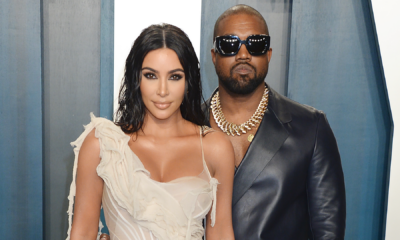

Kanye West Misses Divorce Deposition With Kim Kardashian
-
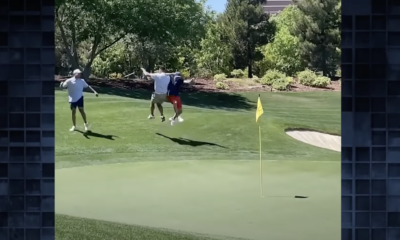

Justin Timberlake Says Travis Kelce Chest Bump Gave Him A…
-


More: BLACKPINKs Jennie Leaves Stage Mid-Way Due To Poor Health
-
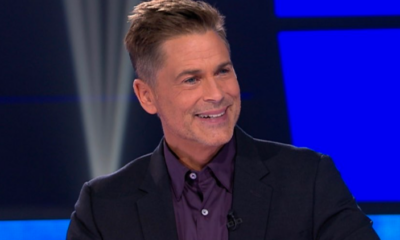

Rob Lowe Says His Audition For Kevin Bacon’s Role In…
-
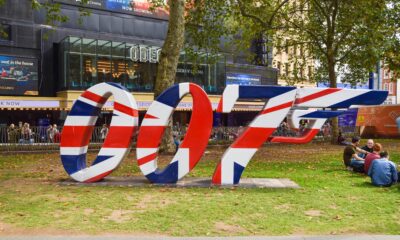

Next James Bond to be a 30-Something actor, according to…
-


Anna Hathaway Says Having To Kiss 10 Actors For ‘Chemistry…
-


Barbra Streisand Deletes Instagram Comment Asking Melissa McCarthy If She…
-


Mariah Carey Sends Flowers To Brenda Lee After She Hits…
-


Ben Affleck Spotted Filming Another Dunkin’ Ad, Recreating Viral Moment
-


Christie Brinkley Shares Skin Cancer Diagnosis
-
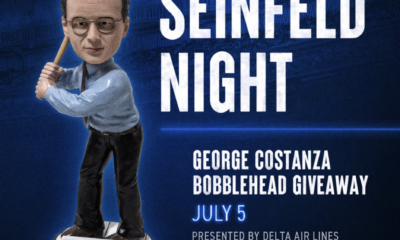

Yankees To Give Away George Costanza Bobbleheads In Honor Of…
-


Julia Stiles Reveals She Welcomed Third Child Last Year

